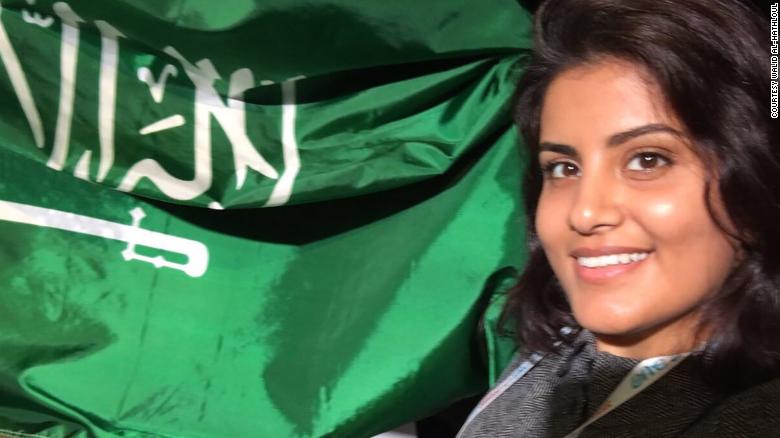The trial of Loujain al-Hathloul, a distinguished Saudi women’s rights activist, began on Wednesday, in keeping with her family.
The 29-year-old was in remission in March of last year as she was driving down a main roadwithin the United Arab Emirates, wherever she had been living.
She was then sent to Saudi Arabia and detained. Hathloul was discharged days later, solely to be in remissiononce moresome weeks later in a very sweep that targeted ten women’s right-to-drive activists.
While no formal charges arerevealed, the official Saudi news organizationaforesaid Hathloul and therefore the women’s rights activists were suspect of “suspicious contact with foreign entities.”
Other state-aligned media rumored that the ladies were suspect of violating Royal Decree 44a, beneaththat dissidents will face terrorist act charges punishable by between 3 and twenty years’ imprisonment.
The arrests were lauded within the kingdom’s thought press, wherever government-aligned media revealed photos of the detained activists and branded them “traitors.”
Hathloul’s brother, Walid al-Hathloul, told our staff Reporter that she has not had access to a professional personwhich, before her trial, she wasn’tresponsive tothe fees against her.
Saudi authorities didn’tlike a shotreply on our request for comment.
Earlier this month, Saudi Arabia was jointlyreprimanded at the United Nations Human Rights Council for the primary time. a press release, signed by thirty six countries, known as on the dominion to unleash human rights activists.
The statement cited Hathloul, moreover as alternative detained women’s rights activists, as people detained “for elbow grease their basic freedoms.”
Hathloul was originally told she would be tried in a very terror court in capital of Saudi Arabia, in keeping with her family, however she was notified that the trial was being moved to a judicaturesimply eight hours before it began. Initial reports that Hathloul would be tried in a very court that usually deals with terrorist offenses heightened speculation that she would receive a harsh sentence.
The State Security Presidency, a robust security equipment that reports on to King Salman and princeMohammed bin Salman, had been watching the detainees beforetheir arrest, in keeping with the kingdom’s official wire service.
Another detained activist, Aziza al-Yousef, UN agency is over seventy, was one amongst the country’s 1st activists movement for the proper to drive ANd signed a petition in recent years career for an finish to the guardianship laws that grant men management over their femininemembers of the family.
Eman al-Nafjan, a 3rdpolitical detainee, may be a well-known blogger UN agency drove in capital of Saudi Arabia in 2013 as a part of a protest that attracted international attention.
Yousef, Nafjan and human rights activist Amal al-Harbi willlast trial nowadays, tho’the sort of court within which the trials canhappen remains unclear, in keeping withAmnesty International.
Weeks when the arrests of the women’s right-to-drive activists, the ban on girls driving in Saudi Arabia was raised.
In January, Walid al-Hathloul elaboratein a very CNN opinion piece the abuse allegedly endured by his sister in jail. throughout a visit to the jail by her oldsters, she told them that she was frequently whipped, beaten, electrocuted and sexually pesteredin a very basement she known as the “palace of terror.”
Saudi activists and Human Rights Watch have additionally alleged that she and alternativefeminine detainees are tortured and sexually pestered in jail.
They additionallysay that a former primeconsultant to princeMohammed bin Salman, Saud al-Qahtani, was giftthroughouta minimum ofone amongst the interrogation sessions. Qahtani allegedly vulnerable to rape, kill and throw one amongst the detainees into the sewer system, in keeping with Human Rights Watch and peopleconversant in the events.
Qahtani, UN agency was additionallyconcernedwithin theStambuldiplomatic building murder of Saudi journalist Jamal Khashoggi, was far from his post as royal court communications chief in November.
Saudi authorities didn’treply to Express Daily’s request for treat Walid al-Hathloul’s allegations. triesto achieve Qahtani through the Saudi government were unsuccessful.
Riyadh antecedently denied allegations of torture {in a|during a|in AN exceedingly|in a very} statement to Express Daily following an initial Human Rights Watch report alleging the abuse in November.
“The Kingdom of Saudi Arabia’s judiciary system doesn’texcuse, promote, or enablethe utilization of torture. Anyone, whether or not male or feminine, being investigated goes through the quality judiciary methoddiode by the general public prosecution whereas being command for questioning, thatdoesn’t in any approachdepend upontorture, either physical, sexual, or psychological,” a Saudi official told CNN in November.
Saudi women’s rights activist under trial : Saudi activist was booked in UAE in 2018:
